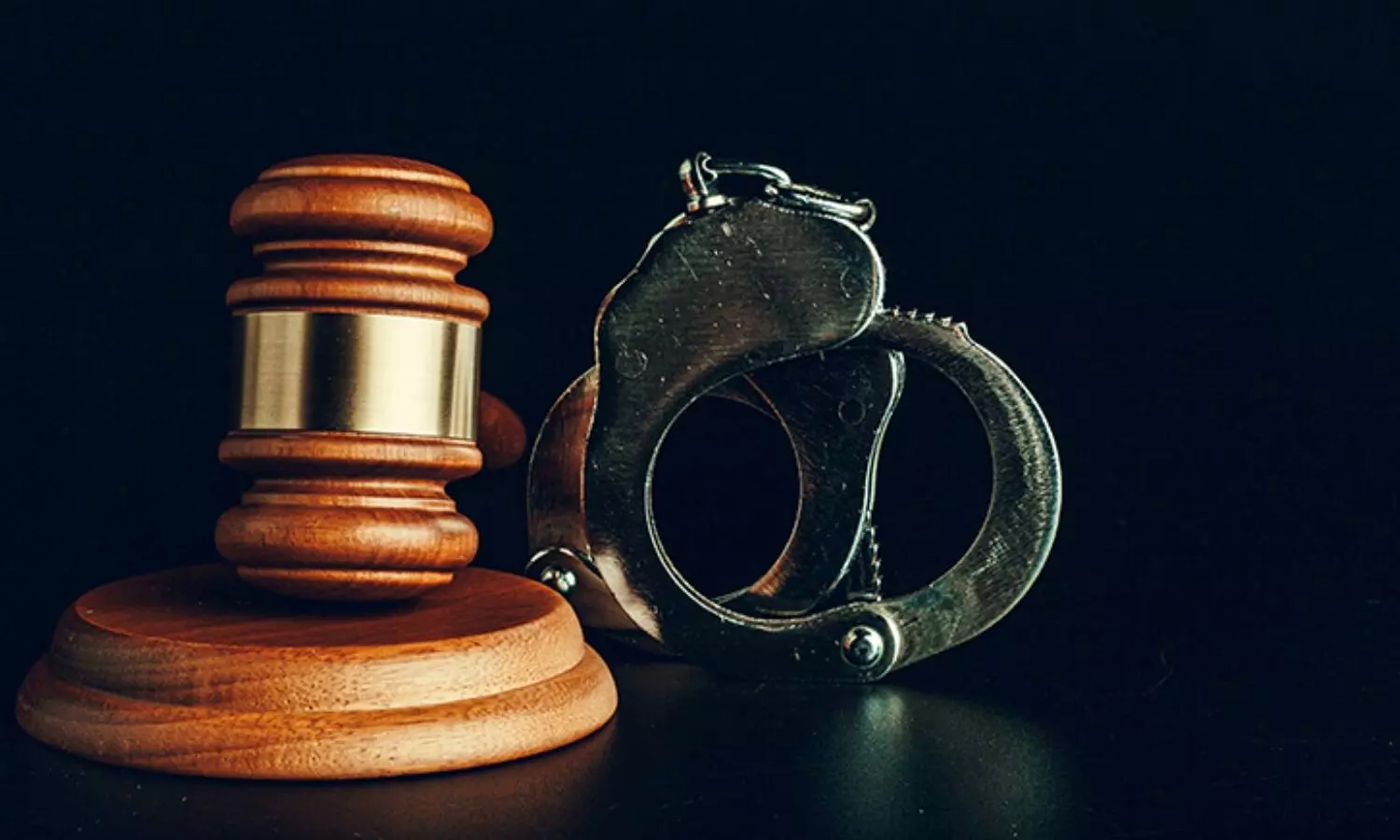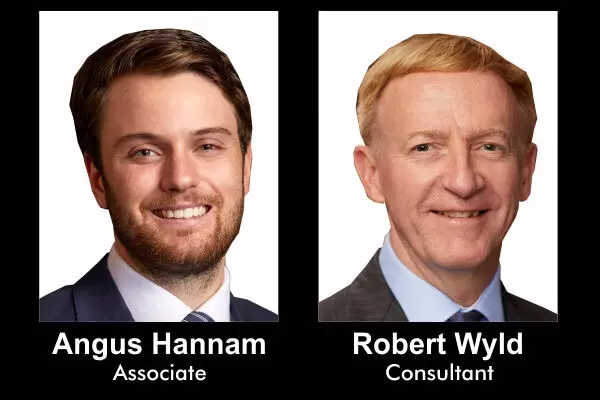- Home
- News
- Articles+
- Aerospace
- Artificial Intelligence
- Agriculture
- Alternate Dispute Resolution
- Arbitration & Mediation
- Banking and Finance
- Bankruptcy
- Book Review
- Bribery & Corruption
- Commercial Litigation
- Competition Law
- Conference Reports
- Consumer Products
- Contract
- Corporate Governance
- Corporate Law
- Covid-19
- Cryptocurrency
- Cybersecurity
- Data Protection
- Defence
- Digital Economy
- E-commerce
- Employment Law
- Energy and Natural Resources
- Entertainment and Sports Law
- Environmental Law
- Environmental, Social, and Governance
- Foreign Direct Investment
- Food and Beverage
- Gaming
- Health Care
- IBC Diaries
- In Focus
- Inclusion & Diversity
- Insurance Law
- Intellectual Property
- International Law
- IP & Tech Era
- Know the Law
- Labour Laws
- Law & Policy and Regulation
- Litigation
- Litigation Funding
- Manufacturing
- Mergers & Acquisitions
- NFTs
- Privacy
- Private Equity
- Project Finance
- Real Estate
- Risk and Compliance
- Student Corner
- Take On Board
- Tax
- Technology Media and Telecom
- Tributes
- Viewpoint
- Zoom In
- Law Firms
- In-House
- Rankings
- E-Magazine
- Legal Era TV
- Events
- Middle East
- Africa
- News
- Articles
- Aerospace
- Artificial Intelligence
- Agriculture
- Alternate Dispute Resolution
- Arbitration & Mediation
- Banking and Finance
- Bankruptcy
- Book Review
- Bribery & Corruption
- Commercial Litigation
- Competition Law
- Conference Reports
- Consumer Products
- Contract
- Corporate Governance
- Corporate Law
- Covid-19
- Cryptocurrency
- Cybersecurity
- Data Protection
- Defence
- Digital Economy
- E-commerce
- Employment Law
- Energy and Natural Resources
- Entertainment and Sports Law
- Environmental Law
- Environmental, Social, and Governance
- Foreign Direct Investment
- Food and Beverage
- Gaming
- Health Care
- IBC Diaries
- In Focus
- Inclusion & Diversity
- Insurance Law
- Intellectual Property
- International Law
- IP & Tech Era
- Know the Law
- Labour Laws
- Law & Policy and Regulation
- Litigation
- Litigation Funding
- Manufacturing
- Mergers & Acquisitions
- NFTs
- Privacy
- Private Equity
- Project Finance
- Real Estate
- Risk and Compliance
- Student Corner
- Take On Board
- Tax
- Technology Media and Telecom
- Tributes
- Viewpoint
- Zoom In
- Law Firms
- In-House
- Rankings
- E-Magazine
- Legal Era TV
- Events
- Middle East
- Africa

Costs in Criminal Proceedings

Costs in Criminal Proceedings In India, most recovery rates for successful litigants are notoriously low, set by old High Court scales that bear no reality to modern economic conditions or the real costs of proceedings t is a routine feature of modern Australian litigation, as in other common law jurisdictions, that the successful party to legal proceedings will be awarded its costs. In...
To Read the Full Story, Subscribe to Legal Era News
Access Exclusive Legal Era Stories, Editorial Insights, and Expert Opinion.
Already a subscriber? Sign in Now
Costs in Criminal Proceedings
In India, most recovery rates for successful litigants are notoriously low, set by old High Court scales that bear no reality to modern economic conditions or the real costs of proceedings
t is a routine feature of modern Australian litigation, as in other common law jurisdictions, that the successful party to legal proceedings will be awarded its costs. In civil litigation, the court generally awards what are called "party/party" costs to a successful litigant or, less frequently, costs on an "indemnity" basis, which may approach or equal the true solicitor/client costs incurred by the successful party. Costs awards on a party/party basis reflect the relative success of the parties to the litigation, whereas an award of indemnity costs carries a punitive aspect.

More interesting is the issue of costs in criminal cases, where the default position of "loser pays" in civil litigation does not hold true.
In India, the question of legal costs, both civil and criminal, is vexed. Most recovery rates for successful litigants are notoriously low, set by old High Court scales that bear no reality to modern economic conditions nor the real costs of proceedings. In the criminal sphere, the position is just as bad, as the Supreme Court of India noted in the well-publicized case of Ashok Kumar Mittal vs. Ram Kumar Gupta on 9 January 2009 (at [7] of the judgment):
The present system of levying meager costs in civil matters (or no costs in some matters), no doubt, is wholly unsatisfactory and does not act as a deterrent to vexatious or luxury litigation borne out of ego or greed, or resorted to as a "buying-time" tactic.
In this article, we consider by way of illustration the rules that apply in New South Wales and consider the following questions:
• How far should costs recovery extend? and
• Should a successful prosecutor be afforded differential treatment to an acquitted accused?
THE CRIMINAL PROCEDURE ACT 1986 (NSW)
In NSW, the central piece of legislation governing the award of costs in criminal proceedings, either in favor of a prosecutor or an accused, is the Criminal Procedure Act 1986 (CPA). As indicated by section 212(1), the CPA covers the field in respect of costs awards in criminal proceedings (subject to the other, more limited, avenues of costs recovery provided by the Costs in Criminal Cases Act 1967 and the Suitors Fund Act 1951).
The court may award costs under the CPA with respect only to committal and summary proceedings, but not in respect of proceedings heard on indictment:
• A convicted accused is generally liable to pay a court costs levy (s 211A), but may also be ordered to pay the professional costs of the prosecutor (ss 215 and 257B).
• The court may order the prosecutor to pay the professional costs of the accused, including where the accused is discharged or the matter is withdrawn at committal (s 116), or where summary proceedings are otherwise dismissed or withdrawn (ss 213 and 257C); and
• A Magistrate may order either the prosecutor or the accused to pay costs by reason of an adjournment in committal or summary proceedings (ss 118, 216 and 257F).
HOW FAR DO "PROFESSIONAL COSTS" EXTEND?
"Professional costs" are defined in the CPA to mean costs, other than court costs, relating to professional expenses and disbursements in respect of proceedings before a court, including witnesses' expenses (ss 116(5), 211 and 257A). Although the term is relatively broad, costs must be "professional" in the sense that they do not include costs which would be incurred by a non-professional person, such as a litigant acting for himself or herself: see Wang v Farkas (2014) 85 NSWLR 390 at [21]-[22].
An interesting issue is whether professional costs recoverable under the CPA extend to investigation costs incurred in the context of criminal proceedings. In Ly v Jenkins (2001) 187 ALR 178, the Federal Court of Australia heard an appeal against a costs order made under section 81 of the Justices Act 1900 (NSW) that the appellants, who were convicted of breaches of copyright, pay witnesses expenses and other costs incurred in obtaining evidence, as well as investigation expenses incurred in both Australia and the United States to prove copyright in certain films said to have been infringed by the appellants' actions. Justice Moore noted at [35] that there appears to be no settled approach to whether the investigation of an offense leading to proceedings and summary conviction can, as a matter of power, be the subject of a costs order, before determining that the particular statutory provision in that case was sufficiently broad to encompass investigation costs: [41]. Justice Kiefel (as Her Honor then was) tended to disagree, but did not express a concluded view: see [132]-[134]. The legal positon relating to a prosecutor's ability to recover investigation costs, including under the CPA, remains unsettled.
Parliament has made specific statutory provision for a prosecutor's recovery of investigatory costs in at least one other context, however, that is the bringing of certain environmental prosecutions under the Protection of the Environment Operations Act 1997 (NSW) (POEO Act), which is the primary anti-pollution legislation in NSW. In passing sentence under the POEO Act, the court may order not only that the defendant pay the professional costs of a regulatory authority, but also the costs and expenses incurred by a regulatory authority during the investigation of the offence: s 248(1). In particular, the authority may be awarded costs and expenses incurred in taking any sample or conducting any inspection, test, measurement or analysis, or in transporting, storing or disposing of evidence during the investigation of the offence: s 248(3). Absent clear words to the contrary, there is no reason in principle why the power to award costs under the CPA should not extend this far.
Differential treatment of prosecutors and accused persons
Whilst the only relevant limits placed on the court's discretion to award costs to the prosecutor is that those costs are considered to be "just and reasonable" (s 215(1)(a)), or that the costs be awarded in accordance with the relevant principles of legal costs legislation (s 257G(b)), an accused person must overcome significant additional hurdles to make out an entitlement to costs under the CPA.
For instance, the court must be satisfied that:
• The investigation into an alleged offence was conducted in an unreasonable or improper manner (ss 214(1)(a) and 257D(1)(a));
• Proceedings were initiated without reasonable cause or in bad faith (ss 214(1)(b) and 257D(1)(b)); or
• A prosecutor's unreasonable failure to investigate, or to properly investigate, any matter of which it was aware or ought reasonably to have been aware and which suggested that either the accused person might not be guilty or that, for any other reason, the proceedings should not have been brought (ss 214(1)(c) and 257D(1)(c)).
In other words, the entitlement of an accused to his/her professional costs is dependent upon some particular improper or unreasonable conduct of the prosecutor, that is, conduct akin to what would underlie an award of indemnity costs in civil litigation. The position was otherwise at common law, where it was a fundamental principle of both criminal and civil costs that costs were not awarded by way of punishment of the unsuccessful party, but rather to compensate the successful party against the costs incurred in legal proceedings: Latoudis v Casey (1990) 170 CLR 534 at 552 (per Mason CJ).
Why, as a matter of principle, an accused having first the benefit of the presumption of innocence and then having been acquitted or a charge dismissed or withdrawn, should be unable to recover the professional costs incurred in defending criminal proceedings in the same way as a prosecutor, is a matter open to debate. It seems unreasonable not to require the same rigour on prosecutors, to hold them to the same standard as civil litigants so that where, in identified circumstances, charges are dismissed or withdrawn, they should not be exposed to costs (with suitable indemnity from the State). We think the same considerations of policy have equal weight in India as much as in Australia. In India, there is perhaps the added need to have real judicial, or other independent oversight, over legal costs. This is one real way to avoid misuse of the system to the advantage of well-funded litigants.


